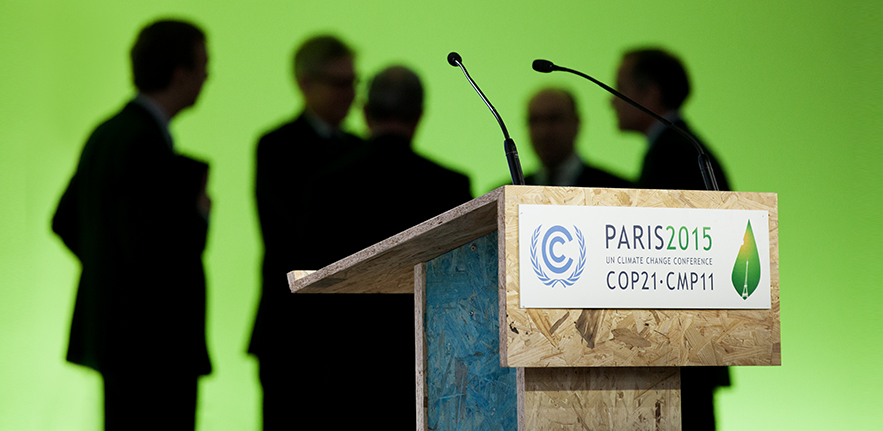
4 March 2019 – Top business leaders believe that the transition to a climate neutral economy will create new opportunities for Europe. As EU energy and environment ministers meet in the coming days, they must realise this and adopt policies for the long-term, say Eliot Whittington, Director, Corporate Leaders Group.
Top business leaders believe that the transition to a climate neutral economy will create new opportunities for Europe. As EU energy and environment ministers meet in the coming days, they must realise this and adopt policies for the long-term, writes Eliot Whittington.
A climate of uncertainty is unsettling European economies of late. As the UK’s departure from the EU looms, anxiety over a chaotic exit has had a chilling effect, with investors abandoning European stocks at the fastest rate since the UK’s referendum.
And with Germany on the brink of a recession, Italy facing a mounting debt crisis and European elections around the corner, we are entering a crucial moment for the long-term prosperity of the single market.
But in these unstable times, European leaders must face up to the challenge and take action to set the bloc on track to a future of improved global competitiveness.
And that means not just charting a path through the immediacies of political and economic upheaval, but also recognising that mid- to long-term success absolutely depends on markets’ abilities to limit and survive environmental changes.
By setting out clear climate pledges and actions, the EU can give businesses a degree of certainty and confidence needed to prepare for the next three decades to 2050.
As ministers meet at EU environment and energy councils in the coming days before a European Council meeting on 20 March, the European Commission’s long-term climate neutral vision, “A Clean Planet for All”, will be high on the agenda.
This new vision has the potential to be a game-changer and is being discussed across the EU policy community. EU ministers for foreign affairs and competitiveness have already engaged in this conversation. It will likely also play into discussions at the Future of Europe summit for EU leaders in Sibiu, Romania, in May.
While European Parliament discussions are ongoing, influential MEPs have already shown their support for the most ambitious pathways towards net-zero emissions by 2050, and a growing number of members states, including France, Sweden and the Netherlands are also backing the long-term strategy.
This ambition is echoed and supported by forward-thinking businesses. Members of the Corporate Leaders Group (CLG), a cross-sectoral group of European business leaders working together to deliver progress towards a low-carbon economy, have called for its ambition to be confirmed by the EU as a whole before the end of 2019.
Top business leaders believe that climate risk can be successfully managed, and that the transition to a climate neutral economy will create new opportunities – but it must be adopted urgently.
Speaking at Davos earlier this year, Ignacio Galán, chairman of Iberdrola, a world leader in wind energy production and member of the CLG, said: “Globally we need governments to continue to pursue policies promoting the massive investments required for a decarbonised economy. Businesses are willing to help governments deliver a better future quicker.”
These businesses include consumer goods giant Unilever, which has already set goals of becoming carbon positive and sourcing 100 per cent of its energy from renewable sources by 2030.
Meanwhile, leading international energy provider EDF has set itself the goal of doubling its net installed capacity of renewable energy from wind, solar, marine and hydro from 28GW to 50GW in 2030.
With bold and definitive EU commitments to reduce carbon emissions to zero before 2050, businesses would have a transparent and unambiguous environment in which to operate.
This would inspire a wave of fresh investments into developing new tools and technologies to meet a target of net-zero emissions by 2050.
And with industrial innovation, economic growth and new jobs would likely follow.
We have already seen how quickly new technology such as LED lighting can be developed and adopted, while digitalisation offers new ways for businesses to become ever more efficient. But all of this requires a mandate.
The EU is well-positioned to lead the world in reducing carbon emissions, having played a defining role in the momentous Paris Agreement. But without decisive action soon, the EU risks losing its competitive edge as a well-regulated market focussed on the innovative new approaches that will need to come to dominate the global economy.
Momentum is growing in the US behind a Green New Deal, while China continues to lead the world in solar energy production, for instance, and youth “Climate Strikers” mobilise protests around the world.
To uphold the EU’s status as a pioneer for climate policy innovation, with all its associated economic advantages, it must seize the opportunity this year to commit to net zero before 2050 and update its 2030 climate targets in line with the Paris Agreement.
A version of this blog was first published on the EURACTIV website.





